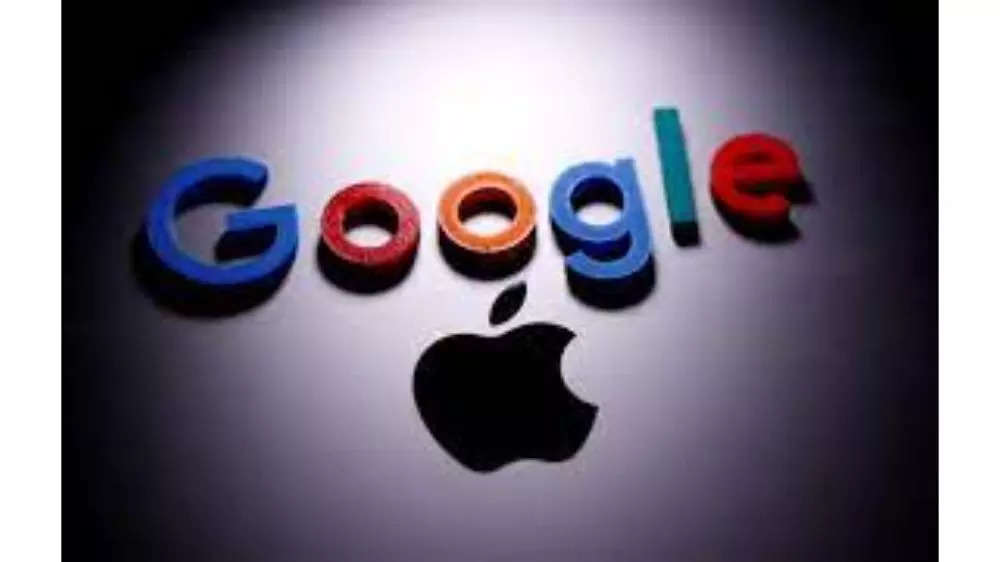Google and some of Europe’s largest telecom operators have reportedly called on Brussels to designate iMessage as a “core” service that would require Apple to make the chat app fully compatible with rivals. According to a report in Financial Times, in a letter sent to the European Commission, the signatories, which include a Google senior vice-president and the chief executives of Vodafone, Deutsche Telekom, Telefónica and Orange, claimed Apple’s service meets the qualitative thresholds of the new Digital Markets Act.It therefore should be captured by the rules to “benefit European consumers and businesses,” they wrote. They demand that it should be able to connect seamlessly with competitors such as WhatsApp.
Currently, only Apple users are able to communicate via iMessage. Companies claim that this makes its signature “blue bubble” texts a key factor in retaining iPhone owners’ loyalty, especially among younger consumers. When customers using smartphones running Google’s Android software join an iMessage chat group all the messages change colour, indicating it has defaulted to standard SMS.
Android users also lose some functionality, such as the quality of videos and photos. Google has long sought to break iMessage’s exclusivity to Apple’s hardware.
What the fight blue vs green fight is all about
The blue and green bubbles fight between Apple and Google refers to the ongoing debate surrounding the incompatibility of Apple’s iMessage messaging service with Android devices. When iPhone users text with Android users, the messages appear in green bubbles instead of the standard blue bubbles, while messages sent between iPhones appear in blue bubbles.. This seemingly minor difference has become a source of discontent between the two tech giants and has been the subject of numerous public spats and ad campaigns.
Apple’s iMessage also offers a variety of features, including read receipts, typing indicators, and high-quality image and video sharing. Some of these features too do not work seamlessly on non-Apple devices. However, these features are only fully compatible with other iPhones.
What Google says
Google has long argued that Apple’s refusal to adopt a universal messaging standard, such as Rich Communication Services (RCS), is anti-competitive and harmful to consumers. Google has developed its own RCS-based messaging app, Messages, but it has not been as widely adopted as iMessage. Google has also launched several ad campaigns criticizing Apple’s “green bubble” strategy, accusing the company of bullying and ostracizing Android users.
What Apple says
Apple has defended its decision not to adopt RCS, arguing that the company’s priority is to protect user privacy and data security. Apple has also pointed out that iMessage is still the most popular messaging service in the United States. The company has not responded directly to Google’s ad campaigns, but Apple CEO Tim Cook has said that he believes iMessage is a “competitive advantage” for the company.
Currently, only Apple users are able to communicate via iMessage. Companies claim that this makes its signature “blue bubble” texts a key factor in retaining iPhone owners’ loyalty, especially among younger consumers. When customers using smartphones running Google’s Android software join an iMessage chat group all the messages change colour, indicating it has defaulted to standard SMS.
Android users also lose some functionality, such as the quality of videos and photos. Google has long sought to break iMessage’s exclusivity to Apple’s hardware.
What the fight blue vs green fight is all about
The blue and green bubbles fight between Apple and Google refers to the ongoing debate surrounding the incompatibility of Apple’s iMessage messaging service with Android devices. When iPhone users text with Android users, the messages appear in green bubbles instead of the standard blue bubbles, while messages sent between iPhones appear in blue bubbles.. This seemingly minor difference has become a source of discontent between the two tech giants and has been the subject of numerous public spats and ad campaigns.
Apple’s iMessage also offers a variety of features, including read receipts, typing indicators, and high-quality image and video sharing. Some of these features too do not work seamlessly on non-Apple devices. However, these features are only fully compatible with other iPhones.
What Google says
Google has long argued that Apple’s refusal to adopt a universal messaging standard, such as Rich Communication Services (RCS), is anti-competitive and harmful to consumers. Google has developed its own RCS-based messaging app, Messages, but it has not been as widely adopted as iMessage. Google has also launched several ad campaigns criticizing Apple’s “green bubble” strategy, accusing the company of bullying and ostracizing Android users.
What Apple says
Apple has defended its decision not to adopt RCS, arguing that the company’s priority is to protect user privacy and data security. Apple has also pointed out that iMessage is still the most popular messaging service in the United States. The company has not responded directly to Google’s ad campaigns, but Apple CEO Tim Cook has said that he believes iMessage is a “competitive advantage” for the company.
